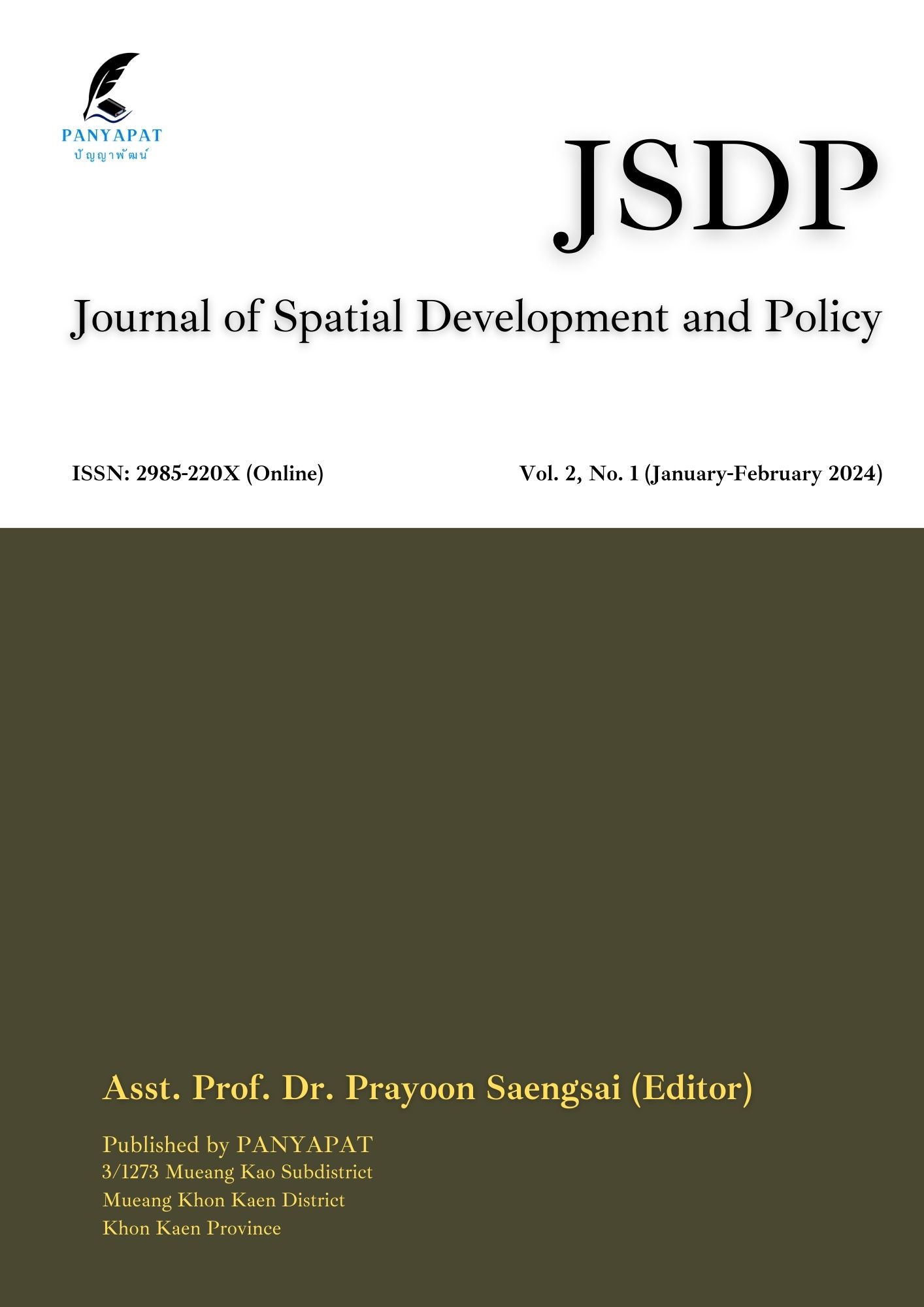การพัฒนาระบบการประเมินผลการปฏิบัติงานของพนักงานแผนกผลิต บริษัทเอ็กโซติค ฟู้ด จำกัด (มหาชน)
Main Article Content
บทคัดย่อ
บทความวิจัยนี้มีวัตถุประสงค์ คือ (1) เพื่อศึกษาสภาพปัจจุบันและปัญหาที่เกี่ยวข้องกับการประเมินผลการปฏิบัติงานของพนักงานแผนกผลิต บริษัท เอ็กโซติค ฟู้ด จำกัด(มหาชน) (2) เพื่อพัฒนาระบบการประเมินผลการปฏิบัติงานของพนักงานแผนกผลิต บริษัท เอ็กโซติค ฟู้ด จำกัด(มหาชน) และ (3) ประเมินคุณภาพของระบบการประเมินผลการปฏิบัติงานของพนักงานที่ทำการพัฒนาขึ้น กลุ่มตัวอย่างที่ใช้ในการรวบรวมข้อมูล คือ พนักงานแผนกผลิต บริษัท เอ็กโซติค ฟู้ด จำกัด(มหาชน) โดยการสัมภาษณ์เชิงลึก 8 ท่าน และใช้แบบสอบถามเป็นเครื่องมือในการเก็บรวบรวมข้อมูล จำนวน 30 ท่าน สถิติที่ใช้ในการวิเคราะห์ข้อมูล คือ ค่าเฉลี่ย และค่าเบี่ยงเบนมาตรฐาน ผลการวิจัยว่า ปัจจุบันการประเมินผลการปฏิบัติงานของพนักงานแผนกผลิต บริษัท เอ็กโซติค ฟู้ด จำกัด(มหาชน)ประสบปัญหาคือการประเมินไม่เป็นระบบ ขาดเกณฑ์การประเมินที่เป็นมาตรฐานและหัวข้อการประเมินไม่สอดคล้องกับลักษณะงานที่ปฏิบัติ ซึ่งมีสาเหตุ 4 ประเด็นดังนี้ 1) นโยบาย 2) รูปแบบการประเมิน 3) วิธีการประเมิน และ 4) บุคลากรขององค์กรยังขาดความรู้ความเข้าใจในทักษะการประเมิน การพัฒนาระบบการประเมินผลการปฏิบัติงานในระยะแรก คือ การสร้างระบบการประเมินขึ้นมาใหม่โดยใช้การประเมินแบบสมดุล(BSC) พร้อมทั้งพัฒนาเกณฑ์การประเมินให้มีความเหมาะสมชัดเจน ต่อมาพยายามสร้างความรู้ ทักษะในการประเมินแก่บุคลากรที่มีส่วนเกี่ยวข้อง ผู้บริหารให้การสนับสนุนและเอาใจใส่กับทุกขั้นตอนในการประเมิน มีการติดตามผลภายหลังจากการใช้การประเมินแบบสมดุล(BSC)
Article Details

อนุญาตภายใต้เงื่อนไข Creative Commons Attribution-NonCommercial-NoDerivatives 4.0 International License.
เอกสารอ้างอิง
ปิยะรัตน์ อนงค์ไชย. (2552). ผลกระทบของประสิทธิภาพการวางแผนงบประมาณของธุรกิจ SMEs ในเขตภาคตะวันออกเฉียงเหนือของประเทศไทย. (บัญชีมหาบัณฑิต, มหาวิทยาลัยมหาสารคาม).
Akmaeva, R. I., Mineva, O. K., & Lunev, A. P. (2015). Peculiarities of staff performance appraisal with the use of balanced scorecard in the area of public and corporate management. Asian social science, 11(20), 160-164.
Almohtaseb, A. A., Almahameed, M. A., Tobeery, D. A. S., & Shaheen, H. K. (2017). The impact of performance management system on employee performance: The moderating role of balance scorecard usage. International Review of Management and Business Research, 6(2), 681-691.
Balashova, N. V., & Nosyreva, I. G. (2022). Personnel Evaluation: Organizational, Methodological and Practical Aspects. In I. A. Savchenko, (Eds.). European Proceedings of Social and Behavioral Sciences (pp. 967-977). London: The registered company.
Banayee, M. R., Faiq, Z., Mohammadi, E. M., & Faizi, F. (2022). Evaluation of the Effectiveness of the Performance Management System in the Ministry of Higher Education. Sprin Journal of Arts, Humanities and Social Sciences, 1(09), 01-11.
Bertalanffy, V. L. (1968). General System Theory. Newyork: Image Braziller.
Dessler, G., (2013). Fundamentals of human resource management. London: Pearson.
Gelens, J., Hofmans, J., Dries, N., & Pepermans, R. (2014). Talent management and organisational justice: Employee reactions to high potential identification. Human Resource Management Journal, 24(2), 159–175.
Lamesawan, P., Silpcharu, T., & Wattanakomol, S. (2023). Guidelines for evaluating the fair performance of personnel in the manufacturing and service business sector. International Journal of Professional Business Review, 8(6), e01714-e01714.
Mdhlalose, D. (2023). The Systematic Review of Effective Performance Management Systems in Organizations. Jurnal Aplikasi Manajemen, 21(2), 319-330.
Oh, S. S., & Lewis, G. B. (2009). Can performance appraisal systems inspire intrinsically motivated employees?. Review of Public Personnel Administration, 29(2), 158-167.
Prasad, L., Nagar, N., Rajsekar, D., Uppal, A. G., Mishra, P., Gupta, S. K., ... & Kornieva, N. (2022). Evaluation of the Exercise of the Performance Assessment System. In Alareeni, B., Hamdan, A., Khamis, R., & El Khoury, R. (Eds.). Digitalisation: Opportunities and Challenges for Business (pp. 547-559). Cham: Springer International Publishing.
Smith, A. W. (1982). Management system: analysis and applications. New York: Dryden Press.
Tarigan, Z. J. H., Sutapa, I. N., & Mochtar, J. (2017). A comparison of academic and non-Academic staffs' balanced score card based e-performance appraisal: A case study. In M. Maode, & L. Cheolil, (Eds.) Proceedings of the 1st International Conference on Education and Multimedia Technology (pp. 66-69) New York: Association for Computing Machinery.
Yohannes, T. (2017). An Assessment of Employees’ performance Appraisal Practice: The Case of Mugher Cement Factory. Doctoral dissertation, Faculty of Business, St.Mary's University.
Zdenko, S., Katarína, S., & Dagmar, C. (2019). Potential of Human Resources as Key Factor of Success of Innovation in Organisations. In D. Cagáňová, M. Balog, L. Knapčíková, J. Soviar, & S. Mezarcıöz, (Eds.). Smart Technology Trends in Industrial and Business Management (pp. 229-247). Cham: Springer International Publishing.

